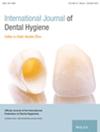Pharmacology is an increasingly important area of study for oral hygienists, as it provides the scientific basis for safe and effective oral healthcare. However, a lack of fundamental understanding of the discipline among clinical graduates can present significant challenges. Oral hygienists require pharmacological training to meet the requirements of their scope of practice. Pharmacology knowledge assists with the diagnosis and treatment of oral conditions and forms the foundation for further clinical competency development. The knowledge and perceptions of pharmacology for pharmacy, nursing and medical students have been well documented; however, little information is present for Bachelor of Oral Hygiene (BOH) students. This paper sets out to evaluate BOH students' and recent graduates' knowledge and perceptions of pharmacology at a single higher institution in Pretoria to identify possible gaps and weaknesses.
A cross-sectional study design was used to collect data using an online questionnaire. The English-language questionnaire consisted of the self-reported perceptions and knowledge and actual knowledge of pharmacology of undergraduate BOH students and recent graduates. The questionnaire consisted of multiple choice questions, true or false questions and Likert scale questions. Ethics was obtained from the institution's Research Ethics Committee (REC 350/2021).
Overall, the participants perceived the pharmacology module positively and understood its importance. Concerns were raised about insufficient time for studying and that assessments were more aligned to gaining factual knowledge than the development of problem-solving skills. Students rated their knowledge between 57.24% and 69.44%, with BOH III students and graduates having a statistically significant greater self-rated knowledge of antivirals, antifungals and common agents used to treat oral conditions in comparison with BOH I and BOH II students. Overall, BOH students and graduates' actual knowledge was between 45.24% and 66.84%. Although not statistically significant, the total self-rated knowledge of BOH III students and recent graduates tended to be higher than their actual knowledge. Knowledge deficits were evident with some pharmacological concepts across the various BOH groups, such as pharmacokinetics, pain, drugs altering dental treatment I: central nervous system drugs, drugs altering dental treatment II: respiratory and endocrine drugs, drugs altering dental treatment III: cardiovascular drugs, drug–drug interactions and common agents used to treat oral conditions.
Self-rated knowledge deficiencies were noted by students and recent graduates for certain pharmacological concepts and were supported by the measurement of their actual knowledge. Further investigation into knowledge deficiencies is needed to guide curriculum review to further strengthen oral hygienists' pharmacological competencies and ensure alignment to their scope of practice.


